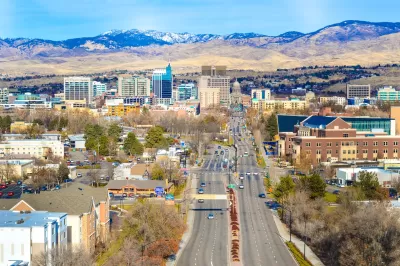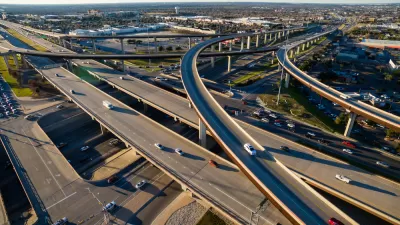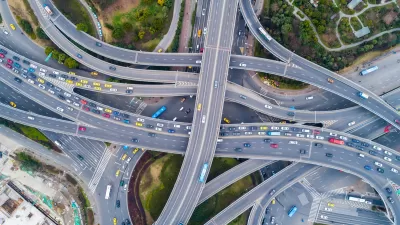On the heels of his stint as Atlanta’s planning director, Tim Keane says Boise should avoid following in the path of American cities that have let highway expansion and sprawl go unchecked for decades.

George Prentice interviews Tim Keane, the new director of Planning and Development Services for the City of Boise, for Boise State Public Radio. When it comes to land use and transportation planning, Keane says planners must “Let go of those flawed ideas that shaped cities for the last generation. Just let them go.”
Pouring money and resources into “dysfunctional highways,” says Keane, doesn’t work. “I can say with great confidence, since I just came from Atlanta, which has the most beautifully designed interchanges you've ever seen that are choked in traffic, that a concentration on designing the most dysfunctional highway that you can is time that's misplaced, because it hasn't worked in any city anywhere in the world.”
When asked about his decision to move from Atlanta to Boise, Keane tells Prentice, “If you look at American cities in the way they've grown over the past 50 or 60 years, the pattern is very similar. The scale is different. But in Boise, the question that intrigues me is, ‘Can we in Boise address these very challenging issues in ways that are better than any American city?’”
According to Keane, “This is a city where we should be concentrating on designing it such that many, many more people can drive less.” Keane goes on, “The only way to do that, however, is if you build beautiful streets that are vibrant and safe for people.” Keane wants Boise to avoid mistakes made by other cities, saying, “let's take up a new collection of ideas around how we address this differently, such that we're building a city that is in the spirit of what the city is today versus becoming something that's utterly different and much like every other city in America.”
FULL STORY: Boise’s new planning director: ‘Let go of flawed ideas that shaped cities for the last generation’

Montreal Mall to Become 6,000 Housing Units
Place Versailles will be transformed into a mixed-use complex over the next 25 years.

Planetizen Federal Action Tracker
A weekly monitor of how Trump’s orders and actions are impacting planners and planning in America.

DARTSpace Platform Streamlines Dallas TOD Application Process
The Dallas transit agency hopes a shorter permitting timeline will boost transit-oriented development around rail stations.

Study: 4% of Truckers Lack a Valid Commercial License
Over 56% of inspected trucks had other violations.

Chicago Judge Orders Thousands of Accessible Ped Signals
Only 3% of the city's crossing signals are currently accessible to blind pedestrians.

Philadelphia Swaps Car Lanes for Bikeways in Unanimous Vote
The project will transform one of the handful of streets responsible for 80% of the city’s major crashes.
Urban Design for Planners 1: Software Tools
This six-course series explores essential urban design concepts using open source software and equips planners with the tools they need to participate fully in the urban design process.
Planning for Universal Design
Learn the tools for implementing Universal Design in planning regulations.
City of Mt Shasta
City of Camden Redevelopment Agency
City of Astoria
Transportation Research & Education Center (TREC) at Portland State University
US High Speed Rail Association
City of Camden Redevelopment Agency
Municipality of Princeton (NJ)





























